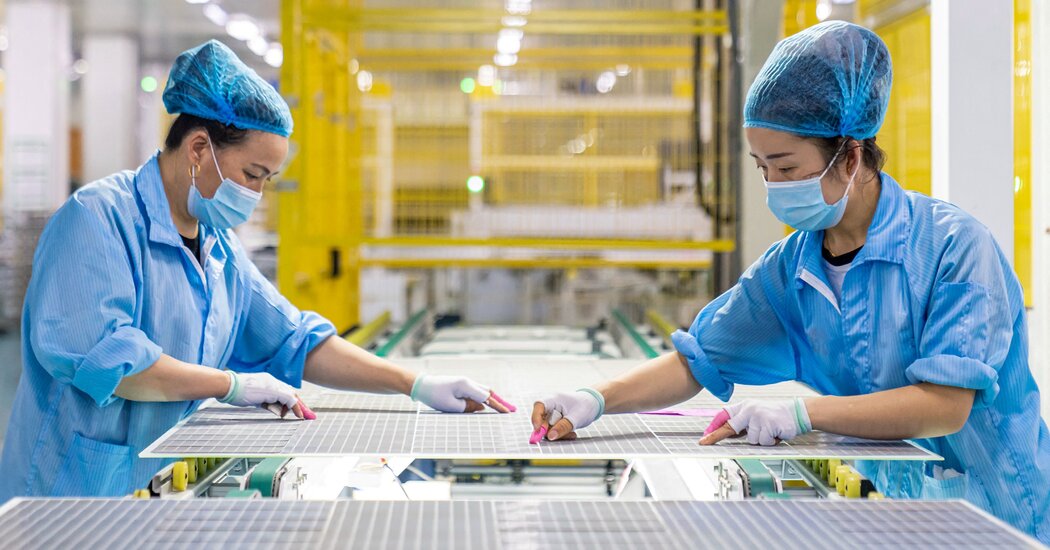The solar tariff announcement came as the House of Representatives voted Friday morning to approve a bill that would devote nearly $300 billion toward scientific research, including $600 million in grants and loans to solar manufacturing. The Biden administration has also proposed substantial tax credits and other measures to spur the solar industry as part of its Build Back Better Act, but that legislation remains mired in Congress.
The solar tariffs were first imposed in February 2018, with President Donald J. Trump following a recommendation of the International Trade Commission, an independent panel that reviews trade cases. The tariffs started at 30 percent and were set to decline by 5 percentage points each year over the course of four years.
Those tariffs would have expired this month. But several manufacturers, including Auxin Solar, Suniva, Hanwha, LG and Mission Solar Energy, petitioned to extend the levies, arguing they were still needed.
In its announcement on Friday, the Biden administration doubled the amount of cells that could be imported into the United States duty-free to five gigawatts, saying the change would give domestic manufacturers that use the cells to make solar panels the supplies they need to be competitive.
But some critics said that change, along with the exclusion for bifacial panels, would gut protections for the domestic industry. In a note to clients on Tuesday, Julien Dumoulin-Smith, a research analyst at Bank of America Merrill Lynch, said that tariffs with those carve-outs “would be largely toothless.”
A senior administration official pushed back on those claims on Friday, arguing that the decision would help create jobs, reduce American dependence on foreign suppliers and meet ambitious clean energy goals.
The White House had been consulting with all sectors of the solar industry, and they all agreed that the tariffs on their own would not bring back solar cell production or increase module production to a point where it could supply U.S. needs, the Biden official said.
Ana Swanson reported from Washington, and Ivan Penn from Los Angeles. Lisa Friedman contributed reporting from Washington.

